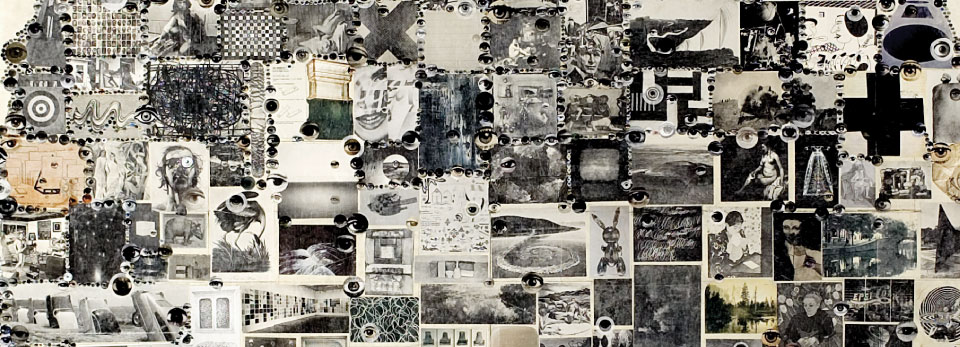


Consider the work of Dyani White Hawk, an Minneapolis-based artist of Sicangu Lakota, German and Welsh ancestry, who draws from her Native culture in her work. Her work is the subject of an exhibition at the Halsey Institute of Contemporary Art, “Dyani White Hawk: Hear Her,” on view through Feb. 26.
Here’s the thing. With White Hawk, we can’t know those stories. Why? Because we don’t understand what they are saying. White Hawk’s work immerses viewers in the worlds of Native women by way of the distinct language of each Indigenous woman’s nation.
READ THE FULL STORY [+]
“Three murals are still up — two on King, one on Calhoun,” Shepard said of the public artworks he created for a 2014 show at the College of Charleston’s Halsey Institute of Contemporary Art, six years after he designed the campaign-defining “Hope” poster of Barack Obama. “There still aren’t a ton of murals in Charleston because of the historical preservation, but I think the appreciation for street art is growing.”

Curator’s take on Native American artist Dyani White Hawk’s exhibit at the College of Charleston’s Halsey Institute of Contemporary Art.
…
Dyani White Hawk’s work illuminates the lived experiences of Native Peoples. With her video, photography, and works in other media, she aims to use the language of visual art to bring light to the deep chasm between our understanding of history and the truth. Her work weaves together forms from the canon of Western art along with the visual languages and traditions of Native Peoples. In doing so, her work spotlights Native women, whose strength and fortitude throughout centuries of colonization have helped their peoples’ languages and cultures survive.
READ THE FULL STORY [+]
The Halsey Institute of Contemporary Art at the College of Charleston presents an exhibition of work by Sičáŋǧu Lakota visual artist and independent curator Dyani White Hawk entitled Hear Her. The exhibition is on view from January 14 to February 26, 2022 at the Halsey Institute of Contemporary Art’s galleries.
Dyani White Hawk’s work illuminates society’s consistent ignorance of Native people. With her video, photography, and works in other media, she aims to use the language of visual art to bring light to the deep chasm between our understanding of history and the truth. Her work weaves together forms from the canon of Western art along with the visual languages and traditions of Native people. In doing so, her work spotlights Native women, whose strength and fortitude over centuries have helped their peoples’ languages and cultures to survive.
READ THE FULL STORY [+]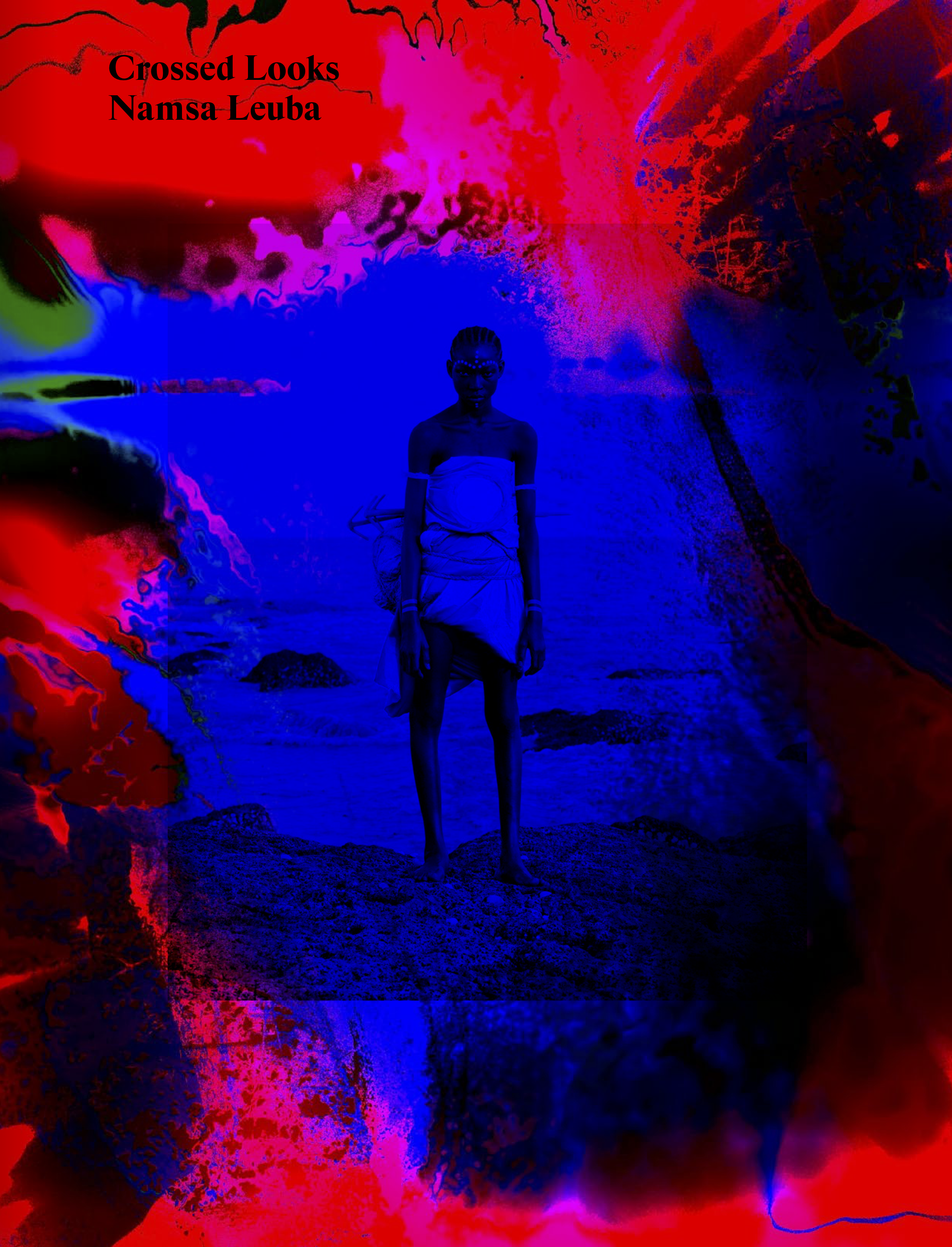
This selection of photobooks, presented during Photo Vogue Festival 2021, seeks to encourage a reflection on the ethical and political implications of how we represent a story or a community.
. . .
Crossed Looks is the first artist monograph featuring the work of Swiss-Guinean artist Namsa Leuba. This publication accompanies the first solo exhibition of Namsa Leuba in the United States, at the Halsey Institute of Contemporary Art in Charleston, South Carolina on August 27 – December 11, 2021.
READ THE FULL STORY [+]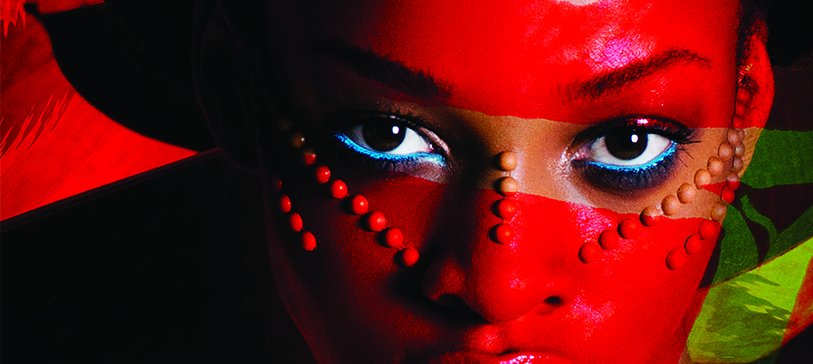
This is a good time to pay attention. Interesting conversations are happening. We are being reminded that imagery has held power long before the existence of Instagram.
This past week, I encountered two jarringly different uses of the African image. First, I was confronted with images used to strip the humanity of Black people. Then, I was surrounded by images created to challenge how we’ve been taught to digest images from that first encounter.
The week opened with me monitoring arguments before the Massachusetts Supreme Court about historic photographs, which were forcibly and derogatorily taken of enslaved Africans here in South Carolina. Tamara Lanier is suing Harvard University for the control of these images of her enslaved ancestors. Part of her documentation includes a genealogical proof, e.g. a way of applying a cohesive research, validation, and logical conclusion on a question of genealogy. Such proofs are one of the services the International African American Museum’s Center for Family History provides, and Ms. Lanier contracted IAAM for her genealogical proof. This has brought the museum into the mix of a tangible example of how the past is a living thing, in constant co-creation and connection with the present.
READ THE FULL STORY [+]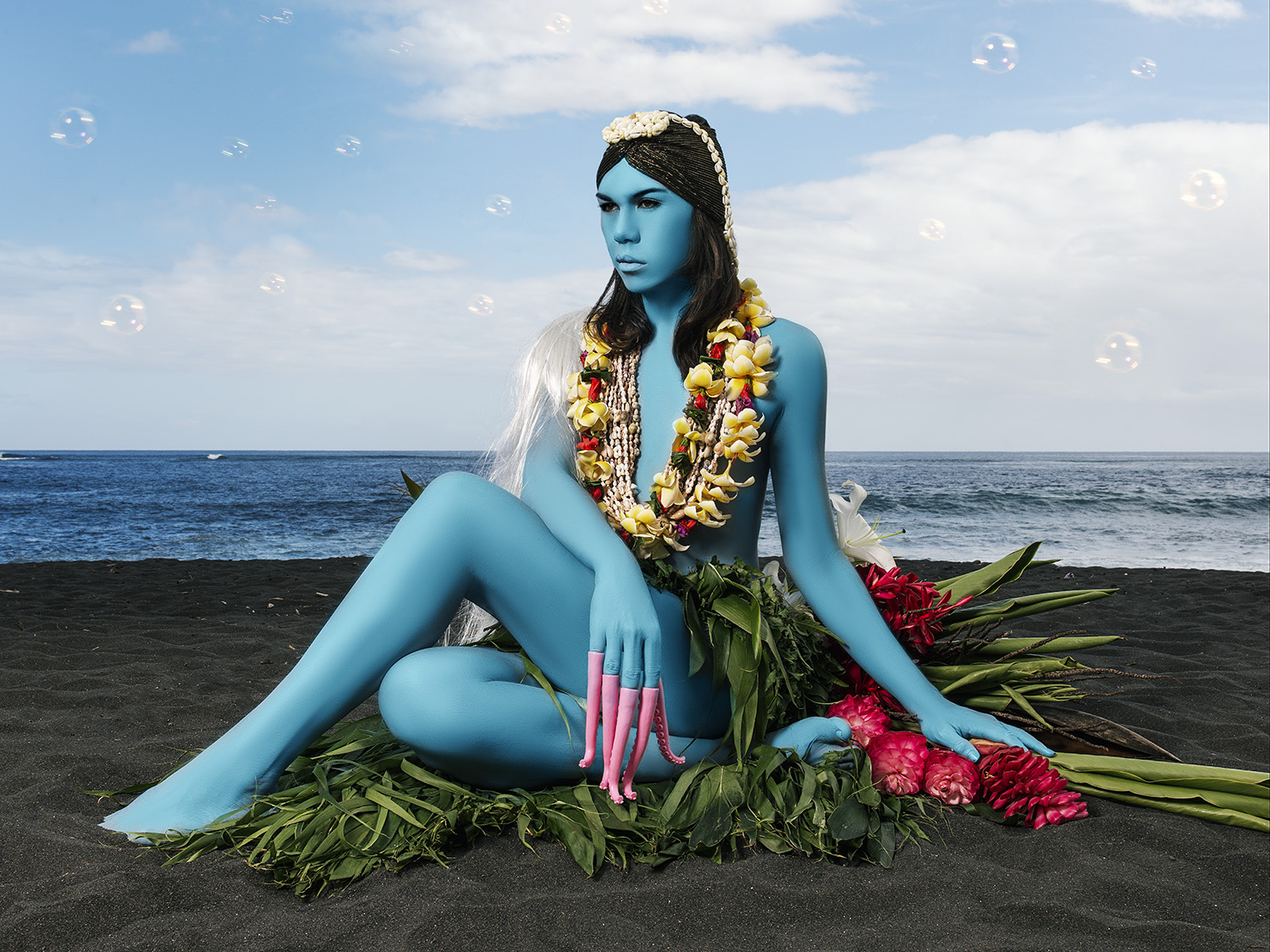
Namsa Leuba is a photographer and art director with Swiss and Guinean roots. Her very first solo exhibition in the United States is currently on display at the Halsey Institute of Contemporary Art in Charleston, SC. The exhibition titled “Crossed Looks” is a retrospective of Leuba’s work and features over 90 photos from her projects in Guinea, South Africa, Nigeria, Benin, and Tahiti. Curated by Joseph Gergel, longtime friend of Leuba and native of South Carolina, the show runs through December 11, 2021. Leuba is known for her unique images visualizing African identity seen through the Western eyes, as she grew up in Switzerland.
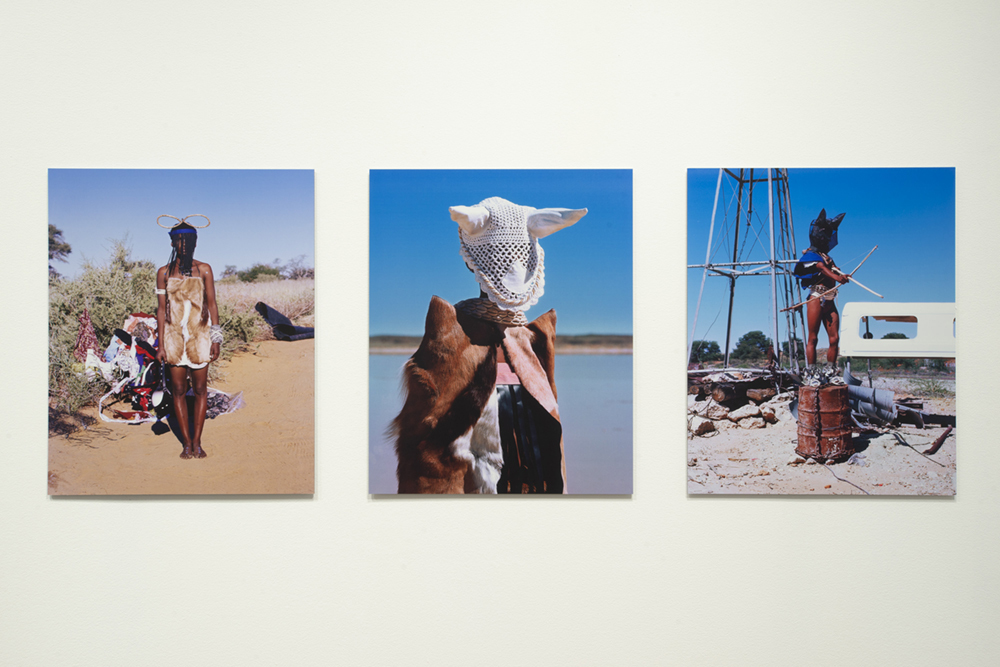
Namsa Leuba: Crossed Looks greets visitors with a visual cacophony of bright colors and amorphous shapes. On the title wall viewers first encounter three of the over ninety photographs on display in the Swiss-Guinean artist’s first solo exhibition in the United States. These initial untitled, abstract photographs—and the repeated visual motif wallpapered behind them—stand out sharply in contrast to the ensuing portraiture. To create them, Leuba photographed a skewed mirror image of traditional Ndebele patterns painted on homes in South Africa. In doing so, she reimagines her source material—a specific cultural tradition characterized by hard-edge geometric patterns—into new distorted images with an almost glitch-like aesthetic. In this way, Leuba creates syncretic images, blending different cultural, visual, and historical references into works that are neither objectively documentary nor completely grounded in fiction.
READ THE FULL STORY [+]
Crossed Looks is the first solo exhibition of Swiss-Guinean artist Namsa Leuba in the United States. The show features over 90 works from the photographer’s projects in Guinea, South Africa, Nigeria, and Benin, and it premieres new work created in Tahiti. As a photographer working across documentary, fashion, and performance, Namsa Leuba’s images explore the fluid visual identity of the African diaspora. With a dual heritage between Guinea and Switzerland, Leuba draws inspiration from her own experience growing up between two different cultural traditions.
READ THE FULL STORY [+]
Crossed Looks is the first artist monograph featuring the work of Swiss-Guinean artist Namsa Leuba and is published by Damiani on 7 September to accompany her first US solo exhibition (Halsey Institute of Contemporary Art in Charleston, South Carolina, August 27 – December 11 2021). It features works from the photographer’s major projects in Guinea, South Africa, Nigeria, Benin, and the debut of a new series recently made in Tahiti. Essays by Joseph Gergel, Emmanuel Iduma and Mary Trent examine the nuanced themes of identity and representation in Leuba’s multiple bodies of work.
READ THE FULL STORY [+]